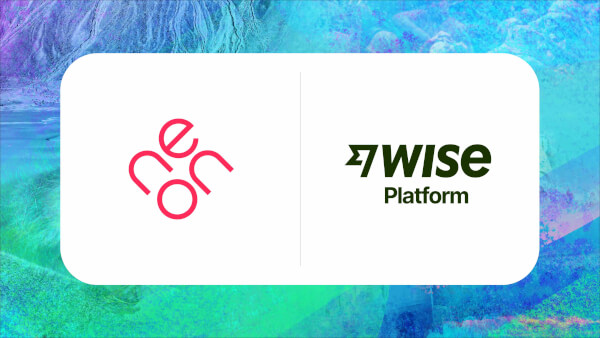Asia-Pacific players embrace partnership to win customer share in cross-border payments
Many banks are taking the first steps toward delivering exceptional customer experiences by using next-generation correspondent service providers.

Wise Platform Commercial Director Abid Mumtaz explains how collaboration with the next generation of correspondents will enable banks to optimise their cross-border payments services and the four key metrics you should consider when evaluating new partnerships.
In an increasingly globalised world, the needs of consumers and SMBs to send money internationally are evolving rapidly. As a result, the market for low value retail payments ($<100k) is growing exponentially, with use cases now accounting for $12 trillion in global cross-border payment outflows. In response to this demand, traditional players and fintechs are offering a wealth of options for cross-border use cases, including payroll, trade and consumer remittances.

Abid Mumtaz, Commercial Director at Wise Platform
To keep pace, banks are under pressure to deliver fast, low cost and more convenient cross-border payments experiences for their customers, or risk losing them to alternative providers. And while traditional correspondents are the life-blood of higher-value corporate payments, banks are increasingly complementing their existing relationships by collaborating with the next generation of correspondent service providers to better compete in the low-value cross-border payments space.
When evaluating this new breed of agile correspondents, banks should focus on four key areas to assess their suitability: customer experience, speed, cost and transparency, ease of integration and network quality and reach.
While traditional correspondents are the life-blood of higher-value corporate payments, banks are increasingly complementing their existing relationships by collaborating with the next generation of correspondent service providers.
As customer needs evolve, banks are building on their correspondent relationships to offer a range of new currency routes, payment methods or to simply accelerate the speed and efficiency of their network in order to compete. When selecting a correspondent, banks need to ensure their partner understands their customers' pain points and can deliver a payment experience that addresses these evolving demands.
Some of the most important metrics when evaluating the suitability of a correspondent partner are speed, cost and transparency. These are essential for capturing market share for low value international payments. Customers expect to know the cost of the payment up front and when it will arrive. Instant payments provide a first class experience for any customer, and it is worth understanding if real-time payment schemes can be leveraged by the correspondent.
Selecting a correspondent services provider that can be easily integrated and aligns with the bank’s existing tech stack, compliance and security requirements is essential.
An example of this is Wise Platform's Correspondent Services solution, which allows banks to simply route Swift messages directly to Wise without requiring a systems upgrade. This next-generation solution can complement existing correspondent relationships by providing access to real-time payment rails leveraging the same tech stack banks already use.
Learn more about Wise Platform
When evaluating the reach of a potential partner’s network, it’s important to understand the countries that they cover and the number of payout methods they support.
And it’s not just reach — it’s about the quality of that reach. Is the correspondent a direct member of Real-Time Gross Settlement (RTGS) or have they been granted access to the network through an aggregator? This distinction will have a material impact on the bank-correspondent collaboration as well as customer experience.
Driven by the need to capture market share in low-value transactions, banks must cater to consumer and SMB demand for fast, cost-effective and transparent international payments services. To do this, they are broadening their correspondent networks to include a new breed of tech-driven providers.
In doing so, the way banks assess correspondents has evolved to reflect the need for network and service modernisation. Keeping these key considerations in mind will help banks establish robust, innovative partnerships that open new corridors and offer their end customers world-class cross-border payments services.
*Please see terms of use and product availability for your region or visit Wise fees and pricing for the most up to date pricing and fee information.
This publication is provided for general information purposes and does not constitute legal, tax or other professional advice from Wise Payments Limited or its subsidiaries and its affiliates, and it is not intended as a substitute for obtaining advice from a financial advisor or any other professional.
We make no representations, warranties or guarantees, whether expressed or implied, that the content in the publication is accurate, complete or up to date.

Many banks are taking the first steps toward delivering exceptional customer experiences by using next-generation correspondent service providers.

Triin Teppo, Wise's Head of Global Products Operations, examines the importance of straight-through processing for improving the customer experience.

Problem Getting paid on time and the right amount has long been the biggest downside of flexible work for freelancers or contractors. Often it is the...

Deel is a leading global HR and payroll company enabling more than 15,000 companies, spanning from SMBs to large enterprises, to scale their teams around the...

Problem Sending money abroad can still be complex, expensive, and slow. For too long, Swiss customers have had few choices about how to send their money...

Discover how leading SME financial service provider Qonto partnered with Wise Platform to double the adoption of its international transfers feature.